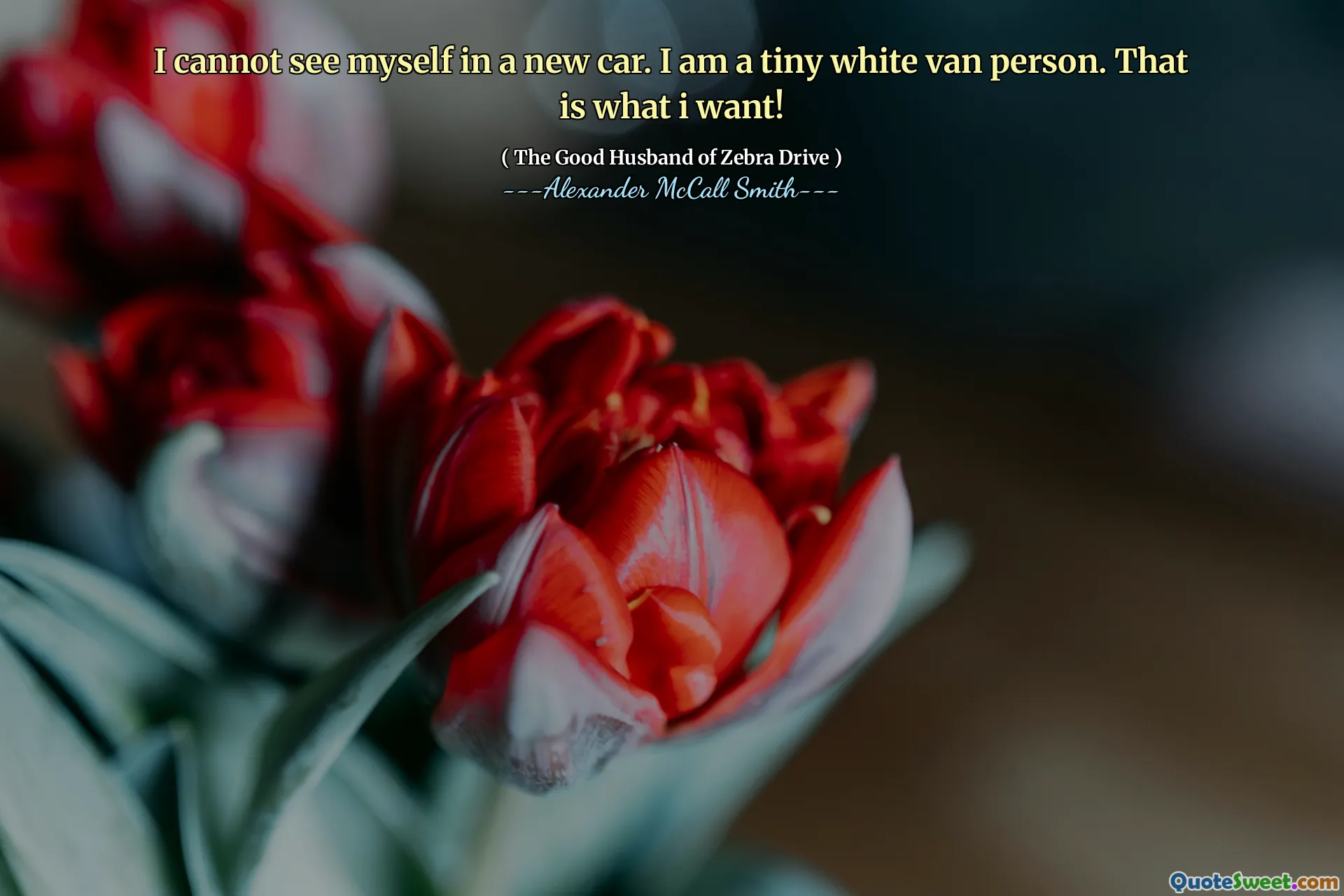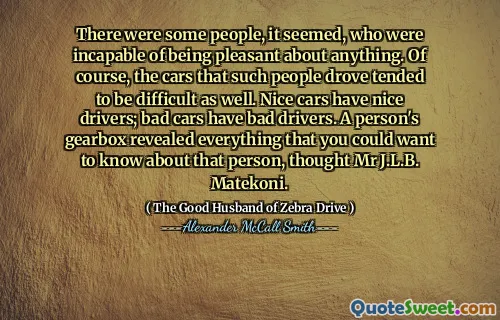
I cannot see myself in a new car. I am a tiny white van person. That is what i want!
The narrator expresses a strong preference for a modest lifestyle, identifying with the simplicity of owning a small white van rather than a new car. This sentiment reflects a deeper connection to personal values and identity; they feel more authentic and content with a vehicle that represents practicality and familiarity.
This notion resonates throughout Alexander McCall Smith's "The Good Husband of Zebra Drive," where characters often embrace simplicity and the comforts of daily life. The quote highlights the importance of aligning one's possessions with personal identity, suggesting that genuine happiness comes from acknowledging one's true self and desires.











